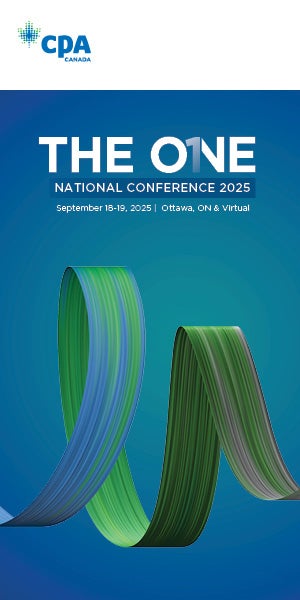CRA woeful disregard for taxpayer rights

Tax lawyer David Rotfleisch on latest Canada Revenue Agency communique
TORONTO – In MNR v Cameco Corporation (2019 FCA 67), the Federal Court of Appeal concluded that section 231.1 of the Income Tax Act simply does not give Canada Revenue Agency tax auditors “a general power to compel oral answers with respect to tax liability [para 34].” This means that a taxpayer need not acquiesce to an oral interview with CRA auditors.
In response on June 3, 2019, the CRA issued a guidance communiqué to its tax auditors titled “Obtaining Information for Audit Purposes,” AD-19-02R.
Showing a woeful lack of respect for taxpayer rights, the communiqué encourages CRA tax auditors to “continue to request oral discussions and interviews with taxpayers.” If a taxpayer declines an interview, the communiqué reminds CRA tax auditors that “the CRA is free to make inferences and assumptions and to assess on that basis.” Furthermore, it prompts tax auditors to consult the Department of Justice in “these types of situations.”
CRA confused about power of its auditors
The Cameco decision concerned the CRA’s most basic audit power: section 231.1 of Canada’s Income Tax Act pursuant to which a CRA tax auditor may:
- inspect, audit, or examine any document of the taxpayer; and
- examine any property or process that “may assist [the CRA] in determining the accuracy of the inventory of the taxpayer or in ascertaining the information that is or should be in the books or records of the taxpayer or any amount payable by the taxpayer.”
To access the requested document or property for review, the auditor may:
- enter a premises or business where the document or property is kept (or should be kept); and
- require any person on the premises “to give all reasonable assistance and to answer all proper questions.”
During a 2013 audit of Cameco, the CRA demanded that Cameco arrange interviews between a CRA auditor and 24 Cameco employees. Cameco refused, but did offer to reply to written questions. The CRA applied to the Federal Court of Canada for a compliance order requiring Cameco to arrange the requested employee interviews with the CRA auditor. The Federal Court refused to grant a compliance order on the basis of ongoing Tax Court litigation and the possibility that a compliance order might prejudice Cameco in those proceedings.
The CRA appealed its loss to the Federal Court of Appeal, which not only upheld the lower court’s decision, but delivered a broader ruling. The lower court’s decision suggested that a CRA auditor couldn’t demand interviews while the taxpayer was pursuing a Tax Court appeal involving similar issues. The Court Of Appeal drew a distinction between “an obligation to facilitate the auditor’s access to documents, records, books, and information,” on the one hand, and “responding to general questions with respect to tax liability or issues arising from the audit,” on the other.
Specifically, the requirements in paragraph 231.1(1)(d) don’t require a taxpayer to answer general questions about tax liability; they require a taxpayer to answer questions that would aid the auditor in obtaining records and documents.
Furthermore, its decision applied not only to an auditor’s request for an interview, but any question from a tax auditor about a taxpayer’s tax liability — regardless of whether the auditor required the taxpayer to answer orally or in writing. “Independent verification through an audit is different than compelling answers to questions,” wrote the court. The ruling of the Federal Court of Appeal is very clear and is a significant curtailment of what CRA had considered to be part of its audit powers.
The response by CRA? If you cannot provide clarity, confusion is the next best thing.
The CRA’s “jurisprudence” isn’t really
The audit communiqué concludes with a section entitled “Jurisprudence” that compiles various quotes — many taken out of context — from judicial decisions describing the CRA’s powers under sections 231.1 (basic audit power), 231.2 (power to demand information), and 231.6 (power to demand foreign-based information). It reminded me of all the courtroom scenes of every episode of Perry Mason ever filmed; scriptwriters wrote them because all those legal terms strung together sounded truly impressive.
Presumably, this collection of quotes provides CRA tax auditors with material that they can copy-and-paste into a letter in response to a taxpayer’s refusal of an interview or to answer substantive tax questions on the basis of Cameco. Many of the quotes are nothing more than obiter dicta — that is, a court’s incidental remarks, which don’t establish precedent because they aren’t essential to the issue before the court. Like a legal dart board, is the CRA auditor to launch any and all that might stick?
For example, seemingly in support of the CRA’s broad audit power under section 231.1 of the Income Tax Act, the communiqué offers the following quote from the Supreme Court of Canada’s decision in R v Jarvis, 2002 SCC 73:
“The provisions that are central to the instant appeal vest the Minister with extensive powers that may be used ‘for any purpose related to the administration or enforcement’ of the ITA. Section 231.1(1)(a) […] Paragraph (a) allows a person authorized by the Minister to “inspect, audit or examine” a wide array of documents, reaching beyond those that the [Income Tax Act] otherwise requires the taxpayer to prepare and maintain […]”
Yet, in Jarvis, the Court wasn’t concerned with the substantive powers that section 231.1 bestowed on a tax auditor. Rather, it faced the issue of whether the Canadian Charter of Rights protected a taxpayer when a CRA tax audit turned into a criminal investigation for tax evasion. So, if one were concerned with accuracy, one might prefer to quote the Court’s holding that “Charter protections are engaged” when the CRA opens a criminal investigation for tax evasion, and therefore “[CRA] investigators must provide the taxpayer with a proper warning” and the tax auditor’s “powers of compulsion in ss. 231.1(1) and 231.2(1) are not available.”
You have the right to remain silent, but CRA will make nasty assumptions if you do
The CRA’s communiqué seems geared toward encouraging its tax auditors to make prejudicial assumptions or to pursue a compliance order should a taxpayer refuse to answer questions about general tax liability. And it goes so far as to arm auditors with cookie-cutter incorrect legal arguments should a taxpayer refuse to answer on the basis of the Federal Court of Appeal’s Cameco decision.
The conclusion we can draw from the audit communiqué is that a refusal to answer inappropriate questions, or to grant oral interviews, will result in a letter from the auditor explaining, incorrectly, why the rights that you think you have you don’t really have, followed by assumptions that will be prejudicial to the taxpayer’s case if the questions are not answered.
What the CRA really needs are tax lawyers who understand and appreciate the Canadian Charter of Rights, prejudicial assumptions, the powers of a tax auditor, and taxpayers’ general tax liability — and the difference among the four.
David J. Rotfleisch, CPA, CA, JD, is the founding Canadian tax lawyer of Rotfleisch & Samulovitch, P.C., a Toronto-based boutique income tax law firm (Taxpage.com). With over 30 years of experience as both a lawyer and chartered professional accountant, he has helped start-up businesses, resident and non-resident business owners and corporations with their tax planning, with will and estate planning, voluntary disclosures and tax dispute resolution including tax litigation. Contact David at david@taxpage.com.









(0) Comments